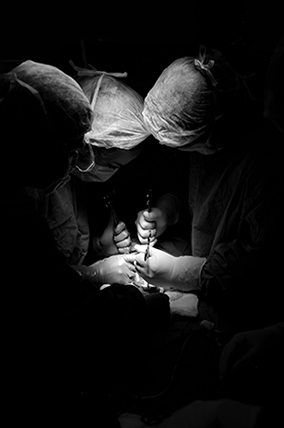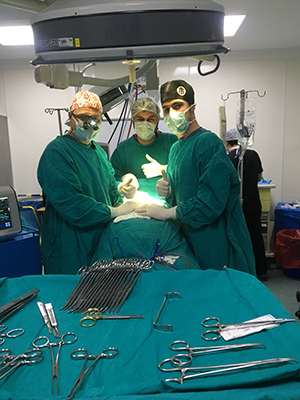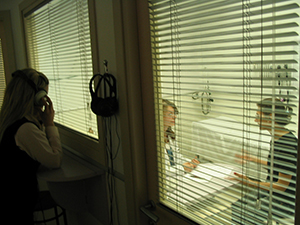HISTORY
Ege University Faculty of Medicine was established in May 20th, 1955. Ord. Professor Dr. Muhiddin Erel was appointed as the first dean of the faculty. Medical education started in the 1955-1956 academic year with 90 students, twenty foreigners. First Medical Doctors were graduated in 1961. Preclinical and clinical departments started to establish in 1958 and currently there are 44 departments in the faculty.
EDUCATION
Medical education has been carried out with “Integrated Medical Education Program” since 1990 and it has been updated to the “Vertical Integration Program” at 2003-2004 academic year. The medical education offered by different departments of the faculty has been re-organized within the framework of subject integrity and the whole program has changed to an organ system-based approach from a department-based approach. This approach ensured better understanding of the diseases by the students. Please refer to the following web page for the curriculum: https://www.kisa.link/NMhM
WHY SHOULD I SELECT EUFM?
- Outstanding educational and research opportunities are provided.
- Accepts top level students from the 1% portion in the national university examination.
- The graduates are among the top list of Medical Specialization Exam (TUS).
- Students receive medical skill practices in addition to courses on basic and clinical sciences from the very beginning of the first year of education.
- Strong infrastructure opportunities enable the anatomy courses to be performed in the cadaver, support theoretical lessons with practical training with microscopes as well as practices on medical skills.
- One of the first medical faculties whose education quality has been approved by the National Medical Education Accreditation Board (TEBDAD).
- The scientific research activities and awards from national as well as international projects makes Ege University Faculty of Medicine a leading research center in Turkey and the world.
- The graduates are well equipped to improve themselves in terms of scientific and social skills even after the graduation.
 |
|
 |
BRIEF INFO ABOUT EUFM
|
|
HIGHLIGHTS OF EUFM Simulated Patient Laboratory Students improve their communication, history taking and physical examination skills with healthy volunteers. These volunteers simulate the symptoms of diseases. The lectures are given in the simulated patient laboratory during the first years of the education under the supervision of the facilitators.
During the 2nd and 3rd years of education, students have the opportunity to make face-to-face practice with their Faculty Members. SSM topics can be related to medicine as well as art, foreign language and social responsibility projects. SSMs aim to improve students' skills such as communication, time management, and oral presentation.
The purpose of the program is to contribute to the training of future scientists. It gives students the opportunity to take part in scientific projects. This elective program is called as “RTP”. By this program students have the opportunity to make one-to-one practice with their Faculty Members, during the 2nd and 3rd years of education. |
|
Student Communities (ETOT)
There are 17 student groups with activities at various fields such as cinema, modern dance, folkloric music, painting, cycling, chess and scientific research. These activities aim to improve the social capabilities of students through cultural, artistic and sportive activities.
ERASMUS + Studies and Traineeship Mobility Programs
Student exchange programs exist in our faculty. We offer training opportunities in various countries such as Germany, France, Spain, Portugal, Netherlands, Denmark, Poland, Lithuania, Greece and Bulgaria within the frame of Erasmus+ inter-institutional agreements.
|
|
TO BECOME SPECIALIZED IN A FIELD
|
BEING AN ACADEMICIAN
At the end of the specialty education period, if wanted, physicians can continue their research in the faculties of medicine and step into academic life. During this academic life, the physician qualifies to get the titles of Assistant Professor, Associate Professor and Professor.
Trailer of Ege University Faculty of Medicine











